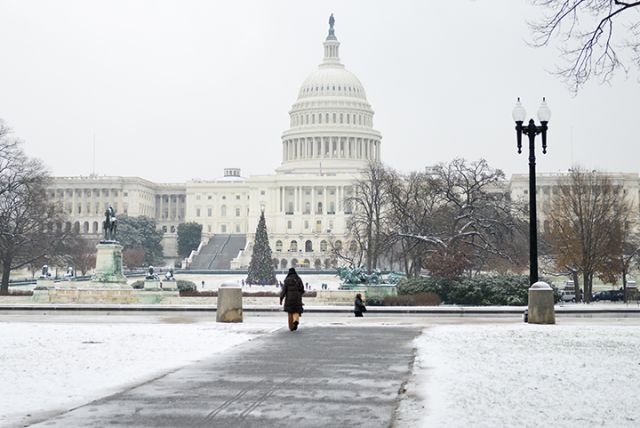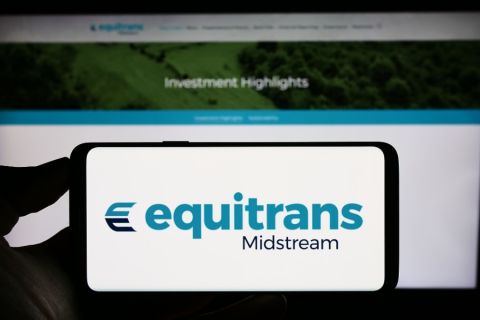
Legislation that would make it possible for the U.S. government to prosecute OPEC member countries for fixing oil prices is moving forward in Congress, despite opposition from international oil companies and business groups concerned about the potential threat to their operations.
Similar proposals have come to Congress several times over the past 20 years without success but the latest attempt is seen as having the best chance yet of becoming law, given President Donald Trump’s longstanding hostility to OPEC.
International oil companies and their lobby groups have warned that such a law would expose U.S. companies and the government to the threat of retaliation.
Like its predecessors, the legislation now being considered by Congress would eliminate the sovereign immunity that has protected members of OPEC, exposing them to the threat of prosecution for collusion under U.S. antitrust laws.
The “No Oil Producing and Exporting Cartels Act 2019”, or Nopec, was approved by the judiciary committee on Feb. 7, setting it on course for a potential vote by the full House.
Also on Feb. 7, a similar bill was launched in the Senate by Chuck Grassley, a Republican senator from Iowa who is a long-standard champion of the US ethanol industry. “The oil cartel and its member countries need to know that we are committed to stopping their anti-competitive behaviour,” he said.
His bill has support from senators from both parties, including Amy Klobuchar, a Democrat who is considering a bid to become the party’s presidential nominee. She said in a statement: “Open competition in international oil markets is critical to ensuring that American families pay fair prices at the pump.”
Bob McNally at consultancy Rapidan Energy said the bipartisan support for the legislation meant it stood a chance of being passed, particularly given past support from Mr Trump. “We are just a tweet away from Nopec becoming law,” McNally said.
Robbie Diamond, president of Securing America’s Future Energy, a group that supports the legislation, said he thought the law would pass the House and could garner support from most senators.
“We have never stood closer to the moment where this could actually happen,” he said.
Previous versions of anti-Opec legislation won strong bipartisan support in Congress as oil prices soared in 2007-2008, but failed to pass after President George W. Bush, a Republican, indicated he would veto them.
International oil groups ExxonMobil and BP, as well as the American Petroleum Institute and the U.S. Chamber of Commerce, last year revived lobbying on the legislation, according to OpenSecrets.org, a group that tracks money in US politics.
The White House has not taken a public position on the latest proposal, but Trump has repeatedly criticised Opec as oil prices rose to a four-year high last year, telling the UN in September that the cartel was “ripping off” the world. In his 2011 book Time to Get Tough: Making America #1 Again, Trump backed anti-OPEC legislation.
The API and the U.S. Chamber this week separately wrote to the House judiciary committee to emphasise their opposition to the proposed law. Making similar arguments, they said that while they opposed cartels, the proposed bill would threaten American interests and potentially trigger retaliatory action by OPEC members against international oil companies and the U.S. government. Exxon, BP and other oil groups operate in several OPEC countries, including Nigeria and Iraq.
Mike Sommers, president of the API, warned in his letter that retaliation by OPEC members “would clearly have a negative impact on our country’s presence in those countries at all levels, which, given their existing geopolitical importance and capacity for U.S. investment, could create significant unintended consequences.”
The business groups added that the bill was unnecessary, because of the shale boom that has made the US the world’s largest crude producer.
US oil companies have benefited from the decision by OPEC and its allies, including Russia, to curb supplies and bolster prices over the past two years, ending the slump that began in 2014. Mohammad Barkindo, OPEC’s secretary-general, said last month that the cartel’s action had “helped to rescue the U.S. oil industry.”
Brian Gilvary, chief financial officer of BP, told the Financial Times that OPEC-led actions to curtail supply forced prices to react, and such efforts were “conducive to investment in oil and gas”. He added that legislating on the activities of other producer nations was “quite a challenging thing to do”.
The legislation could allow the forfeiture of assets in the U.S., something that is a major concern for officials in Saudi Arabia, OPEC’s de facto leader. Saudi Arabia owns the biggest US oil refinery and is in talks to acquire natural gas assets, one person familiar with the kingdom’s position said.
The Nopec legislation was also one reason why Qatar in December ended its membership of OPEC after 57 years, a person with knowledge of the decision said. The law could have posed a risk to its investment in the $10bn Golden Pass liquefied natural gas export project in Texas.
McNally said that if Nopec legislation were passed and took effect, it could lead to greater volatility in crude prices, including steep falls that would damage the US oil industry.
“After a good dose of Nopec, if it was successful, we would end up begging them to reunite, get back into business and start controlling supply,” he said.
Recommended Reading
Hess Midstream Increases Class A Distribution
2024-04-24 - Hess Midstream has increased its quarterly distribution per Class A share by approximately 45% since the first quarter of 2021.
Baker Hughes Awarded Saudi Pipeline Technology Contract
2024-04-23 - Baker Hughes will supply centrifugal compressors for Saudi Arabia’s new pipeline system, which aims to increase gas distribution across the kingdom and reduce carbon emissions
PrairieSky Adds $6.4MM in Mannville Royalty Interests, Reduces Debt
2024-04-23 - PrairieSky Royalty said the acquisition was funded with excess earnings from the CA$83 million (US$60.75 million) generated from operations.
Equitrans Midstream Announces Quarterly Dividends
2024-04-23 - Equitrans' dividends will be paid on May 15 to all applicable ETRN shareholders of record at the close of business on May 7.
SLB’s ChampionX Acquisition Key to Production Recovery Market
2024-04-21 - During a quarterly earnings call, SLB CEO Olivier Le Peuch highlighted the production recovery market as a key part of the company’s growth strategy.





